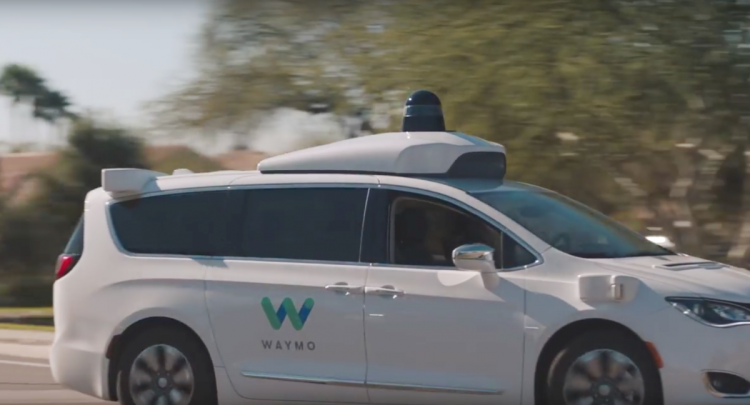Watch all the Transform 2020 sessions on-demand here.
According to marketing firm ABI, as many as 8 million driverless cars will be added to the road in 2025. Meanwhile, Research and Markets is predicting that in the U.S. alone, there will be some 20 million autonomous cars in operation by 2030.
But how do consumers feel about them? According to a survey of 1,146 automobile owners published by online car marketplace CarGurus, they’re both more enthusiastic and less worried about driverless cars than a year ago, and close to a third think they’ll own a self-driving car within the next decade.
“Consumer sentiment around self-driving cars is changing fast, with enthusiasm rapidly replacing skepticism,” said CarGurus’ director of customer insights Madison Gross. “These benchmarked results demonstrate that today’s consumers are becoming more comfortable with the idea of either owning an autonomous vehicle, or having them on the road, and it will be fascinating to continue to monitor this perception shift.”
Specifically, 32% of respondents (up from 21% in 2018) say they’re “excited” about the development of self-driving cars while 37% say they’re “concerned” (down from 37%). Among those who expressed misgivings, 87% said they wouldn’t be comfortable relying on self-driving cars for safety and cited liability, expense, and technological immaturity as their other top fears.
June 5th: The AI Audit in NYC
Join us next week in NYC to engage with top executive leaders, delving into strategies for auditing AI models to ensure fairness, optimal performance, and ethical compliance across diverse organizations. Secure your attendance for this exclusive invite-only event.
It’s a somewhat surprising turn of events. Last fall, a study published by PSB Research and commissioned by Intel found that nearly half (43%) of consumers don’t feel safe around autonomous cars, and in three separate studies this past summer — by the Brookings Institution, think tank HNTB, and the Advocates for Highway and Auto Safety (AHAS) — a majority of people weren’t convinced of driverless cars’ safety. More than 60% said they were “not inclined” to ride in self-driving cars, and almost 70% expressed concerns about sharing the road with them.
Just over 27% of survey-takers told CarGurus that they’re looking forward to piloting a self-driving car (compared with 26% who aren’t), while the majority are still worried both about being a passenger in a driverless car (49% compared with 30%) and sharing the roads (52% compared with 18%) with them.
High-profile accidents haven’t helped instill much confidence. In March of last year, Uber suspended testing of its autonomous Volvo XC90 fleet after one of its cars struck and killed a pedestrian in Tempe, Arizona. Separately, Tesla’s Autopilot was found to have been engaged in the moments leading up to a fatal Model X collision this past spring — the second fatality involving Autopilot since a crash in May 2016.
As for which companies people trust the most to produce a self-driving car, Tesla led the list despite its Autopilot gaffes, followed by Toyota and Alphabet’s Waymo. Close to 29% said they have faith in Tesla, up from 25% in 2018, while 9% trust Toyota; 7% trust Waymo; 5% trust Ford and Honda; 4% trust GM and Apple; 3% trust Volvo and Daimler; and 2% trust BMW. About 17% of consumers don’t trust any company, down from 27% last year.
Interestingly, Waymo is the only firm on the list that’s launched a commercial driverless car service (Waymo One). Tesla recently announced that next year, it’ll leverage a fraction of the Tesla cars on the road to launch its own fully autonomous taxi service, though it remains to be seen whether that will come to fruition. GM’s driverless vehicle division, Cruise, has repeatedly promised to launch a commercial service this year that would feature upwards of 2,600 driverless cars; Daimler and Bosch say they’ll pilot “highly” autonomous vehicles in San Francisco as part of an on-demand ride-hailing service; and Ford says it intends to launch a fleet of “thousands” of self-driving cars in 2021.
Waymo is also leagues ahead of the competition where total autonomous miles driven are concerned, with 10 million as of October. Cruise — reportedly a close second, although it doesn’t publicly disclose total mileage — racked up only about 500,000 miles in the state of California last year, where it conducts the bulk of its testing.
The CarGurus survey also asked respondents about whether they’d consider taking a ride in self-driving cars provided by ride-hailing apps, like Uber and Lyft. Close to 35% of people who currently use such services said they’d likely take a driverless ride in the future, with Uber edging out Lyft with respect to trust (22% compared with 13%).
Perhaps Uber’s redoubled safety initiatives have convinced a formerly skeptical public. Following the 2018 crash, Uber spent months testing its self-driving technology on a closed track and completed a lengthy internal review. In a blog post published in June, the company detailed newly implemented safeguards, such as a training program focused on safe manual driving and monitoring systems that alert remote monitors if drivers take their eyes off the road. It now mandates that teams of two employees — called “mission specialists” — drive its cars, switching off every two hours.
Uber’s self-driving car division is also well-capitalized, which helps. Earlier this month, Toyota, Denso, and SoftBank invested $1 billion in Advanced Technologies Group, Uber’s autonomous technologies group, valuing it at $7.25 billion.


